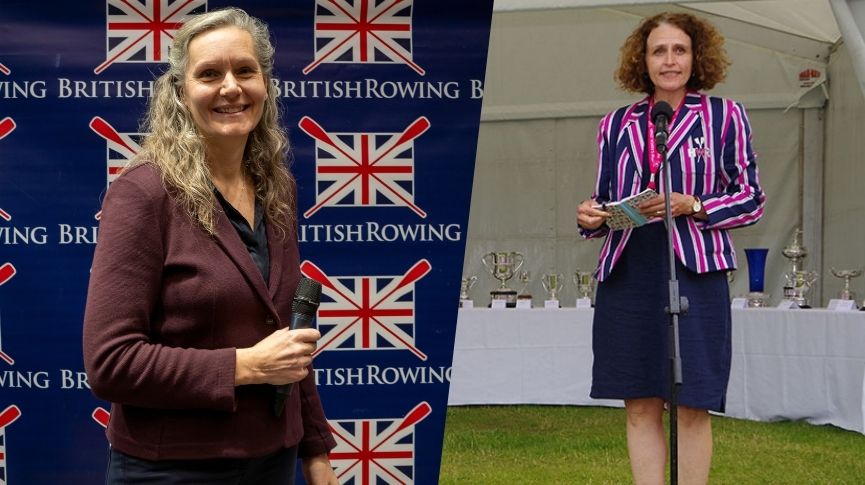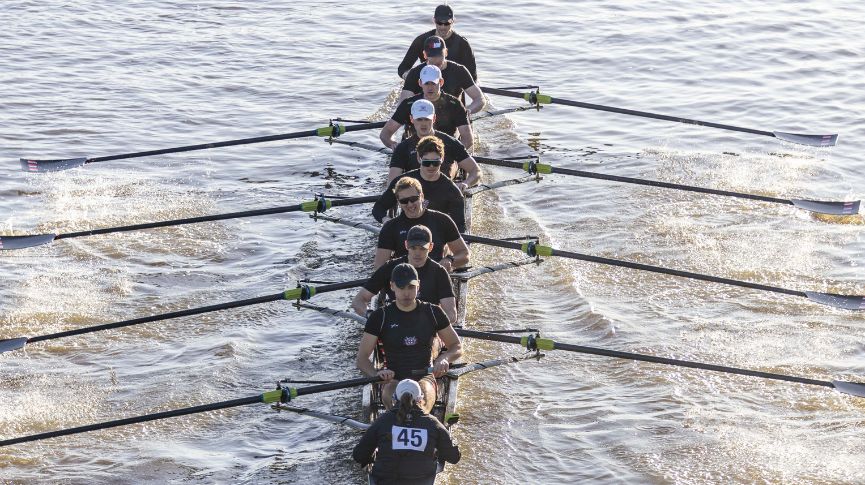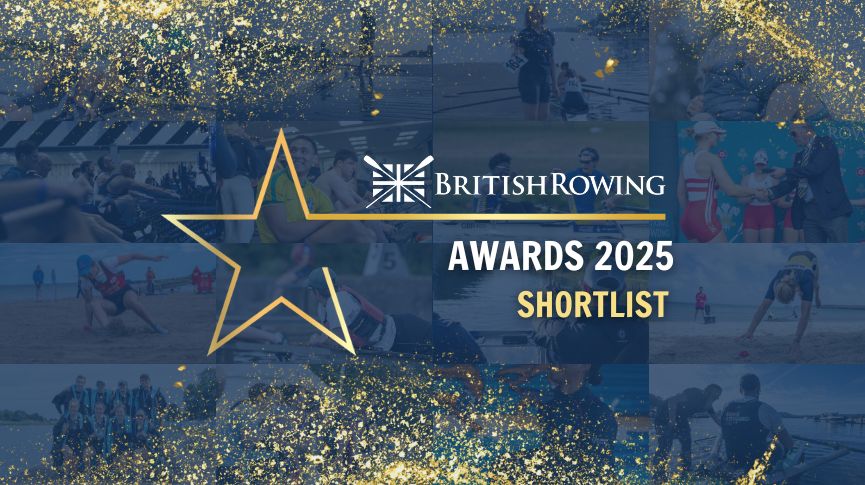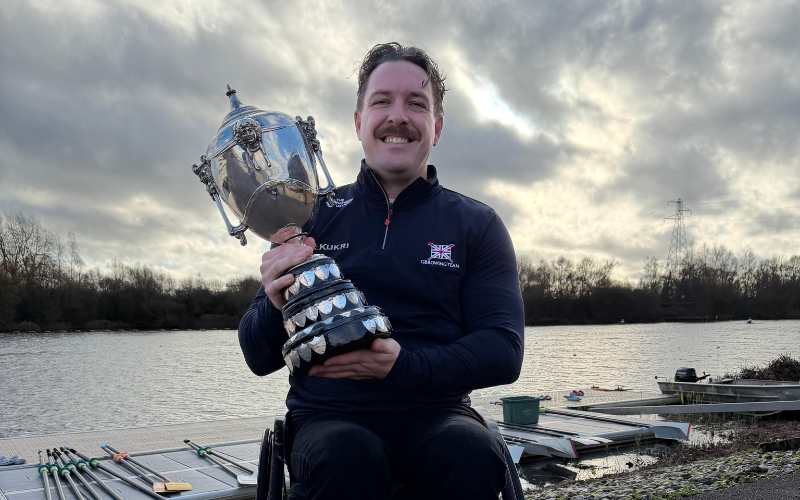Rowers recognised for lifesaving reactions after competitor collapses
Royal Humane Society certificates presented to three rowing club members reflect their prompt and effective actions after a masters sculler collapsed at the Head of the Stour
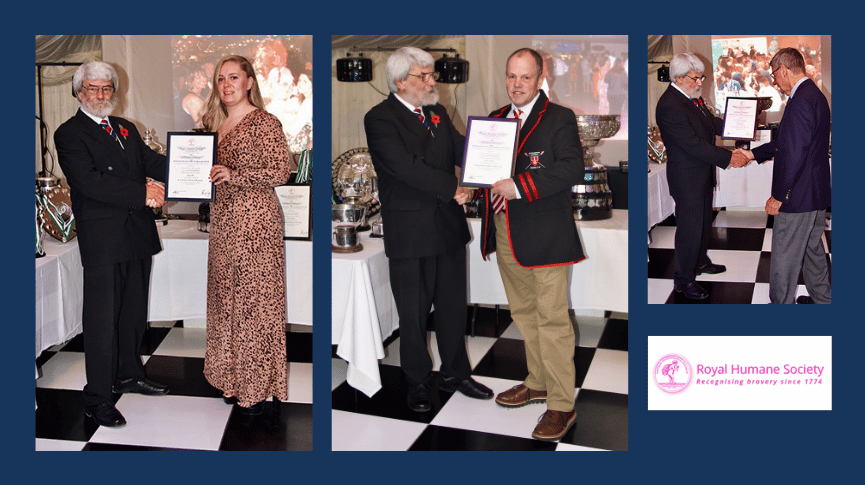
In early March 2023, Jeff Watling of Southsea RC and Robert Hall of Guildford RC raced in a Masters double at the Head of the Stour in Christchurch. Shortly after finishing, Robert – who was at stroke – collapsed and fell backwards into the boat. Jeff realised the seriousness of the situation and decided the best course of action was to row to the public hard. Crew members from other boats attempted to inform people on the shore of the seriousness of the situation and one sculler assisted him in steering the boat to the hard, as it was difficult to turn and look round with Robert’s weight slightly to one side of the boat. By the time Jeff reached the hard, several people had waded into the water, ready to take hold of the boat.
One of these was Megan Hill of Poole ARC, who had been watching the race at the finish platform with others including her sister, Francesca Hill. Seeing that someone had collapsed on their way back to the clubhouse, she alerted a marshal and then ran back towards the slipway, which was about 400m away. After jumping into the water to get to Robert as quickly as she could, she could see his eyes were glazed over, he was sheet white, and his body was dead weight.
Megan determined that Robert had stopped breathing and that he was unresponsive. She started chest compressions. Stefan Sauders, assisted by Jeff Wardell, both from Southampton ARC, then helped Megan to get him out of the boat and take him to solid ground on the slipway where CPR was continued.
In the meantime, Jo Clayton from Poole ARC attended to Robert’s crewmate Jeff Watling, talking to him and keeping him calm. Francesca called the ambulance and then directed onlookers.
Megan continued with the chest compressions while Stefan was administering the breaths. She had completed a couple of cycles of CPR before a First Aid Contractor for the event arrived with the defibrillator. Megan felt Robert’s ribs break under her hands and knew that cracked and fractured ribs are often associated with performing chest compressions. Feeling or hearing ribs cracking should not deter the rescuer from performing chest compressions.
The First Aid contractors worked around her, removing Robert’s clothing and attaching their defibrillator. They administered the first defibrillator shock; Megan and Stefan continued with CPR until the defibrillator was ready to deliver another shock. At this point, Robert was bleeding from his mouth and agonal gasping – this is a brain response to low oxygen blood levels and should not be confused with normal breathing.
“It’s brings me nothing but great happiness and contentment that we were able to help Robert continue his passion for rowing and long may that continue. I wish him all the best.” – Megan Hill
The ambulance arrived shortly after the second shock was delivered; Megan continued CPR until the defibrillator advised “no further shock” and “stop CPR”. Robert’s pulse was regained as colour returned to his face. Megan then stepped aside. The ambulance Paramedics connected heart monitoring equipment, attached a cannula, and set up a drip prior to transferring Robert to the ambulance for further stabilisation and transfer to the Royal Bournemouth Hospital.
Robert’s life was saved due to the prompt and effective action of all concerned. Although his rovery continues, he has already returned to rowing and is hoping to take part in the Head of the Stour again in 2024.
Jeff Watling has been awarded with a Royal Humane Society Certificate of Commendation. Megan Hill and Stefan Saunders have both been awarded a Royal Humane Society Resuscitation Certificate. All three certificates were presented at the recent Hants and Dorset Amateur Rowing Association Championship Presentation Dinner by British Rowing Honorary Rowing Safety Adviser Stephen Worley.
Jeff Watling said, “I would like to thank Megan, Stefan and everyone who helped Robert. It is good to be back training with him.”
About the Royal Humane Society
The Royal Humane Society is a charity that grants awards for acts of bravery in the saving of human life and also for the restoration of life by resuscitation.
The Society was founded in London in 1774 by two eminent medical men, William Hawes and Thomas Cogan, who were keen to promote techniques of resuscitation. It became apparent that people were putting their own lives in danger rescuing others and they felt that these acts of bravery should be recognised.
The Society also recognises people who have contributed to the saving or attempted saving of life, though they may not have put their own life at risk. Resuscitation certificates may be granted to those who, though not professionally trained to do so, carry out a successful resuscitation.


